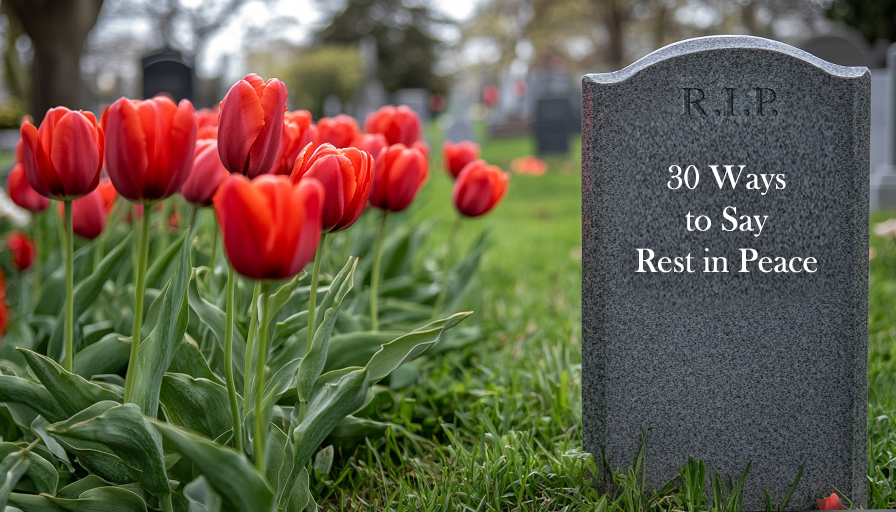What Does the Bible Say About Cremation?
Cremation has become a widely accepted practice around the world, yet for many people of faith, particularly Christians, the question remains: What does the Bible say about cremation? While the Bible doesn't give an explicit command regarding cremation, it offers several principles that can guide individuals in making personal decisions about this sensitive issue. This article will explore the scriptural basis for understanding cremation, its historical context, and how modern Christians can approach the topic.
Understanding the Absence of Direct Biblical Instruction
The first thing to note is that the Bible does not explicitly mention cremation as either forbidden or encouraged. Throughout its texts, there is no clear directive that promotes burial over cremation or vice versa. Instead, biblical accounts tend to emphasize burial as the standard practice, particularly among the Hebrew people. For example, prominent figures such as Abraham, Moses, and David were buried, and the burial of Jesus is central to the Christian faith.
In the absence of a specific commandment, believers often seek guidance from the broader principles within scripture regarding the body, death, and the afterlife.
Biblical Accounts of Burial
Burial is a dominant theme in the Bible, and many followers of Christ have historically chosen burial as a way to honor the body, believing it to be a sacred vessel created by God. Let’s look at some examples:
- Abraham’s Burial of Sarah: in Genesis 23:19, Abraham buries his wife, Sarah, in a cave in the land of Canaan. This act of acquiring land for her burial demonstrates the significance Abraham placed on providing a proper resting place for his loved ones.
- Jesus’ Burial: after the crucifixion, Jesus was placed in a tomb, following the Jewish custom of burial (Matthew 27:57-60). His resurrection is a pivotal part of Christian theology, further reinforcing the emphasis on burial as the traditional practice in ancient times.
These examples illustrate that burial was the norm in biblical times, but they do not necessarily prescribe burial as the only acceptable method for handling the deceased.
Cremation in Ancient Cultures
While burial is highlighted in the Bible, cremation was not entirely unknown in the ancient world. Certain pagan cultures, such as the Greeks and Romans, practiced cremation, particularly for military heroes. This practice, however, was often associated with pagan rituals, leading to its rejection by the Hebrew people and early Christians.
The rejection of cremation by early Christians was largely cultural. In societies where cremation was linked to polytheistic rituals, the preference for burial reflected a desire to distance Christian practice from pagan customs. For these early believers, burial was not only a tradition but also a theological expression of the belief in bodily resurrection.
The Christian Belief in Resurrection and the Body
Central to the Christian faith is the belief in the resurrection of the dead. This is a core doctrine that raises questions about how cremation fits into the broader understanding of the resurrection.
1 Corinthians 15:35-44 speaks to the transformation that occurs after death: "So it will be with the resurrection of the dead. The body that is sown is perishable, it is raised imperishable." Here, the Apostle Paul emphasizes that the physical body, whether buried or cremated, is subject to decay. Yet, at the resurrection, believers will receive new, imperishable bodies.
This teaching implies that God’s ability to raise the dead is not contingent on the preservation of the physical body. Whether a body has decomposed after burial or been reduced to ashes through cremation, the same principle of resurrection applies. For God, who created the universe from nothing, the condition of the remains is not a barrier to the promise of new life.
Cremation and Respect for the Body
Another principle guiding Christians in their decision about cremation is the Bible's teaching on the sanctity of the human body. The body is described as a temple of the Holy Spirit (1 Corinthians 6:19-20), and Christians are called to honor God with their bodies.
For some believers, this has led to the conclusion that cremation is not respectful of the body. They argue that burial reflects a higher regard for the physical form that God created. However, others argue that the method of returning the body to the earth is secondary to the manner in which a person’s life honored God. For them, the emphasis should be on how one lives, rather than on how one's body is handled after death.
The practice of cremation does not inherently violate the principle of respecting the body. Many Christian traditions today incorporate ceremonies surrounding cremation that treat the body with dignity and care, just as with traditional burials.
The Historical Shift in Christian Attitudes Toward Cremation
In the early centuries of Christianity, cremation was uncommon and even discouraged because of its association with pagan rituals. However, over time, attitudes have shifted. By the 20th century, cremation began to gain acceptance among Christians, particularly in Western cultures, where it was seen as an economical and practical option.
In recent years, Christian denominations have become more open to cremation, seeing it as a personal choice rather than a theological issue. For example:
- The Catholic Church historically opposed cremation, but in 1963 lifted its ban, allowing cremation as long as it is not chosen for reasons that deny the Christian belief in resurrection.
- Protestant denominations generally allow cremation, leaving the decision to individual conscience. Some even provide specific services and rites for those who choose cremation, emphasizing that the ashes should still be treated with respect.
Environmental and Practical Considerations
In modern times, practical and environmental considerations have also influenced the rise in cremation. In many urban areas, the availability of land for burial is limited, making cremation a more practical option. Additionally, concerns about the environmental impact of traditional burials, such as the use of embalming chemicals and large caskets, have led some Christians to consider cremation as a more eco-friendly choice.
For those concerned with environmental stewardship, cremation can be seen as an option that aligns with the biblical mandate to care for God’s creation. While some might prefer "green burials" as a natural alternative to both cremation and conventional burials, the principle remains the same: seeking a way to honor the body and the earth in the process of returning to dust.
Personal Conviction and Freedom in Christ
Ultimately, whether to choose burial or cremation is a matter of personal conviction. As Christians, we are called to seek wisdom and guidance from God’s Word, but where the Bible is silent, there is freedom. Romans 14:5 reminds us, "Each one should be fully convinced in their own mind." Whether a person chooses burial or cremation, the key is to make the decision with a clear conscience before God.
The Bible offers room for personal choice in this matter, guided by faith and a heart of reverence for God. While cultural and familial traditions may influence the decision, the absence of a direct biblical command gives believers the liberty to decide based on their circumstances, values, and beliefs.
Final Thoughts
Cremation, once viewed with suspicion by Christians, has gained acceptance as a valid option for handling the remains of loved ones. Though burial was the norm in biblical times, the Bible does not explicitly forbid cremation. Instead, it emphasizes broader principles such as the respect for the body, the belief in resurrection, and the importance of living a life that honors God.
In the end, the method of handling the body after death is secondary to the hope of eternal life in Christ. Whether through burial or cremation, Christians can rest in the assurance that God will fulfill His promise of resurrection and that nothing in life or death can separate them from His love.
If you have any questions, comments or according to you certain information is missing after reading this post, feel free to contact us via the contact form.

















